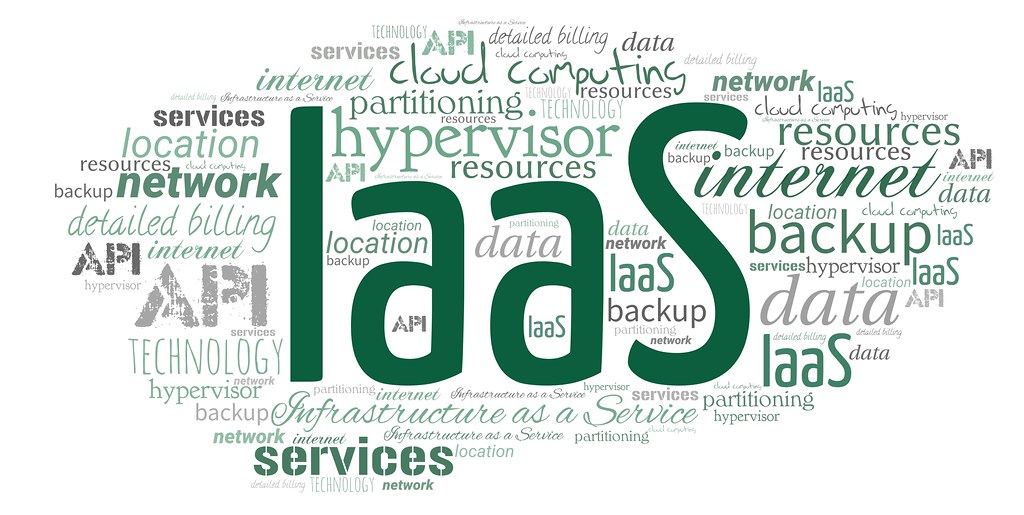Infrastructure as a Service (IaaS)
Infrastructure as a Service (IaaS) has emerged as a powerful solution. In this article, we will delve into the depths of IaaS, exploring what it is, how it works, and its diverse use cases.
What is Infrastructure as a Service (IaaS)?
Infrastructure as a Service (IaaS) is a cloud computing model that offers virtualized computing resources over the Internet. Essentially, it provides organizations with the fundamental building blocks for their IT infrastructure. These resources include virtual machines (VMs), storage, networking, and more. Users can access and manage these resources remotely, eliminating the need for physical hardware and data centers.
Key Components of IaaS:
- Virtualization: IaaS relies on virtualization technology to create virtual instances of servers, storage, and networking components. This allows for efficient resource allocation and management.
- Scalability: IaaS platforms are designed to scale resources up or down based on demand. This elasticity ensures that businesses can handle fluctuating workloads without investing in excess hardware.
- Self-Service: Users can provision, configure, and manage their infrastructure resources through web-based interfaces or APIs. This empowers IT teams to be more agile and responsive.
- Pay-as-You-Go: IaaS operates on a pay-as-you-go pricing model, where organizations only pay for the resources they consume. This cost-effective approach eliminates capital expenses for hardware and reduces operational overhead.
How Does IaaS Work?

IaaS providers, such as Amazon Web Services (AWS), Microsoft Azure, and Google Cloud Platform (GCP), own and maintain the physical data centers and hardware. Users rent these resources on a subscription basis. Here’s a simplified overview of how IaaS works:
- Resource Provisioning: Users select the virtualized resources they need, such as VM instances, storage capacity, and networking configurations, and provision them via the IaaS provider’s management console.
- Resource Management: Users have full control over their virtual infrastructure. They can configure, monitor, and manage resources as per their requirements.
- Scalability: IaaS platforms automatically adjust resource allocation based on real-time demand. This ensures optimal performance during peak periods and cost savings during lulls.
- Security and Compliance: IaaS providers offer robust security features, including firewalls, encryption, and compliance certifications, to protect data and ensure regulatory compliance.
Use Cases of IaaS
IaaS has a broad range of applications across various industries. Here are some prominent use cases:
- Web Hosting: IaaS is commonly used to host websites and web applications. Users can easily scale resources to accommodate traffic spikes and ensure high availability.
- Development and Testing: Developers leverage IaaS to create isolated development and testing environments, reducing development cycle times and improving code quality.
- Data Backup and Disaster Recovery: IaaS provides cost-effective solutions for data backup and disaster recovery. Organizations can replicate data to offsite locations for business continuity.
- Big Data and Analytics: IaaS platforms offer the computational power and storage capacity required for processing and analyzing large datasets, making it ideal for big data projects.
- E-commerce: Online retailers use IaaS to handle peak shopping seasons efficiently, ensuring their websites can handle high traffic volumes without downtime.
- IoT Applications: Internet of Things (IoT) devices generate vast amounts of data. IaaS helps process and analyze data in real time, enabling smarter decision-making.
- Content Delivery: IaaS is employed for content delivery networks (CDNs) to distribute content globally, reducing latency and improving user experience.
Conclusion
Infrastructure as a Service (IaaS) has revolutionized the way organizations manage and scale their IT infrastructure. Its flexibility, scalability, and cost-efficiency make it a vital component of modern businesses. By partnering with reputable IaaS providers and tailoring solutions to their specific needs, businesses can unlock efficiency and competitiveness in an ever-evolving digital landscape.
- Amazon Web Services (AWS): One of the leading IaaS providers, offering a wide range of cloud services.
- Microsoft Azure: Microsoft’s IaaS and PaaS platform, known for its robust enterprise solutions.
- Google Cloud Platform (GCP): Google’s cloud services platform, offering cutting-edge technology and global reach.







